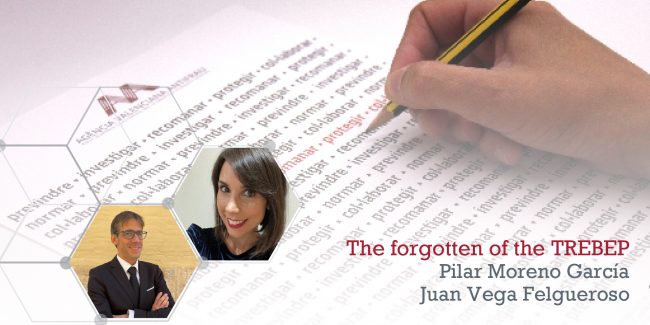Urban legends say that the most well-known and cited norm of all the legal systems in the world is the Fifth Amendment to the North American Constitution of 1791. The legal chronicles ( Swerdlow , 1982) collect as one of the historical moments of the use of the Fifth Amends the appearance of Blanche Posner, a retired teacher member of the WSP ( Women Strike for Peace ), who invoked the Fifth up to 44 times in the same hearing before the HUAC (Un-American Activities Committee). She, along with her companions, who also followed the same line of defense, added up to 145 invocations in the same process of the norm of the North American Constitution that allows witnesses to refuse to answer when the answers could incriminate them. In the legal practice of our national legal system, the legal precepts on which there is a consensus as the most used and cited are also two articles of the 1978 Constitution, 14 and 24. The first, regulating equality, and the second, effective judicial protection and the right to defense. On the opposite side of fame, in the place where oblivion lives, are the least used and unknown articles of our legal system, which apparently from the doctrine turn out to be articles 52 to 54 of the TREBEP. THE FORGOTTEN TREBEP: Articles 52 to 54 of the Consolidated Text of the Basic Statute of Public Employees. The code of conduct for public employees is largely forgotten in our administrative legal system, and it is worth noting that such abandonment has been due to both doctrine and the selection processes carried out by Public Administrations, as well as (sometimes) training that is given to public employees once they enter the public service, as, consequently, due to its lack of application, due to the jurisprudence that emanates from Courts and Tribunals. The regulation of the code of conduct is found, to the surprise of many public employees who are unaware of this issue, included with the force of law in articles 52 to 54 of Chapter VI of Title III of Royal Legislative Decree 5/2015, of October 30, by which the consolidated text of the Law of the Basic Statute of the Public Employee is approved. The TREBEP establishes the regulation of the code of conduct for public employees (art. 52), detailing the ethical principles that must be respected (art. 53) as well as the principles of conduct to which they are subject (art. 54). Below we will analyze and justify in this text the affirmation that the regulatory articles of the code of conduct for public employees are the great forgotten of our public legal system, having to anticipate from this moment that part of the doctrine has already been pointing to this conclusion, although without detailing and extending it, a reason that drives and justifies this work, and in this sense we have to endorse the forceful conclusion that reminds us that “the TREBEP Code of Conduct, applicable to public employees, has passed without pain or glory, as a perfect stranger” (Jiménez Asensio, 2020). 1. The doctrine: late administrative ethics and doubts about ethical codes. Concerns for modernization and reform of the public function in our legal system have fundamentally revolved around bureaucratic, organizational, and control aspects (Irurzun Montoro, 2010). Thus, the concern of the legislator, and of a large part of the doctrine, was focused on the study of electronic administration, and very specifically on the integration of new technologies in the classic institutions of our administrative law, the study of ethics within the framework of the Administration. It will not be until the first decade of the 21st century when the well-known and abundant cases of corruption produced in the framework of political activity -and in a related way in the Public Administrations themselves- have given rise to doctrinal reflections that would culminate in the regulation of behaviors. ethics of public activity. From this moment, a doctrinal concern for the behavior and ethical and moral qualities of public employees will be strengthened. The doctrine has been using indistinctly, for this figure unknown up to now in our public law, the denominations of public ethics or political ethics (Villoria Medineta , 2007), seeming in our opinion more accurate the denomination of administrative ethics (Gracia Romero & Latorre Villa, 2007). The doctrinal study of administrative ethics is based on two main pillars; on the one hand, that branch of knowledge that addresses and pursues the explanation of the ethics of the public organization itself; On the other hand, the second approach to administrative ethics deals with the study of the ethics of the personnel at the service of the Administration itself. The ethics of public employees, in which the code of conduct is integrated, can also be analyzed from two conceptual prisms: the negative and the positive (Carro Fernández-Valmayor, 2010). The negative approach addresses the construction of a limiting ethic, that is, one that seeks to avoid fraudulent or corrupt behavior. Positive or extensive ethics, on the contrary, seeks, in contrast, an improvement or passion for the sense of public service, fleeing from the repression of behaviors to seek the promotion of values. 2. The legal effectiveness of the codes of conduct and their application by the Courts and Tribunals. The problem of the legal effectiveness of articles 52 to 54 of the TREBEP regulating the code of conduct, despite its undoubted inclusion in a legal norm, arises from the moment the Basic Statute of Public Employees was approved in the year 2007, and this because already in that statement of reasons the legislator, after pointing out the innovation that the configuration of “an authentic code of conduct” implied in our legal system, immediately specified immediately that it was included in the Statute with ” a pedagogical and guiding purpose”. The dogmatic difficulty that arises from the statement of reasons itself is accentuated by the literal wording of article 52 in fine, which establishes that “The principles and rules…
 The meeting “Open Government on the stage of the 2030 Agenda” brought together representatives of the Open Government Alliance (OGP), the Presidency of the Government of Spain, the Council for Transparency and Participation of the Community of Madrid, the Network of Local Entities for the Transparency and Citizen Participation of the FEMP, the Transparency Council of Aragon, the Presidency of the Government of Navarra, as well as councils such as Castellón and Gipuzkoa and Canary Islands institutions such as the Canary Institute of Public Administration and the Canary Institute of Statistics (ISTAC) among others.
The meeting “Open Government on the stage of the 2030 Agenda” brought together representatives of the Open Government Alliance (OGP), the Presidency of the Government of Spain, the Council for Transparency and Participation of the Community of Madrid, the Network of Local Entities for the Transparency and Citizen Participation of the FEMP, the Transparency Council of Aragon, the Presidency of the Government of Navarra, as well as councils such as Castellón and Gipuzkoa and Canary Islands institutions such as the Canary Institute of Public Administration and the Canary Institute of Statistics (ISTAC) among others.


